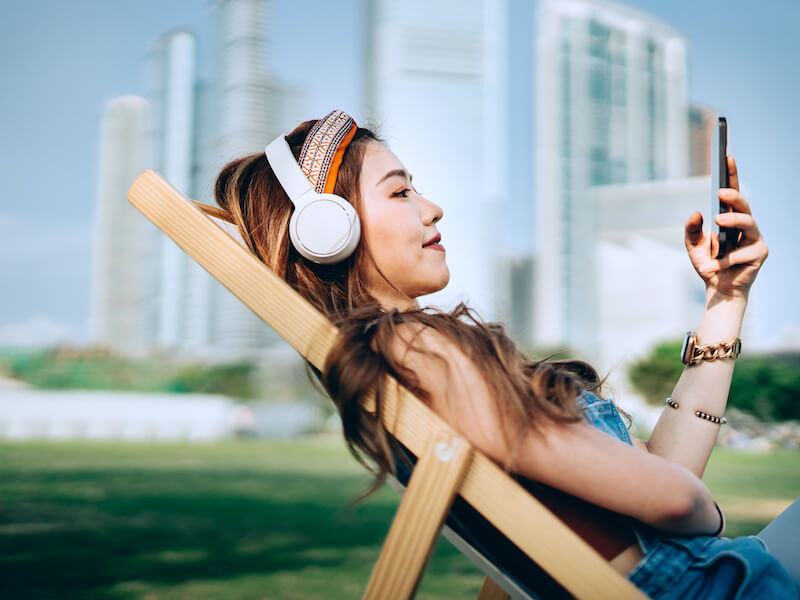
Aiden enjoys music. He listens to Spotify while working, switches to Pandora while jogging, and he has a playlist for everything: gaming, cooking, gym time, and everything else. His headphones are almost always on, his life a totally soundtracked affair. But the exact thing that Aiden enjoys, the loud, immersive music, might be contributing to irreversible damage to his hearing.
As far as your ears are concerned, there are healthy ways to listen to music and dangerous ways to listen to music. But the more hazardous listening option is usually the one most of us choose.
How can hearing loss be the result of listening to music?
As time passes, loud noises can cause degeneration of your hearing abilities. We’re accustomed to thinking of hearing loss as an issue caused by aging, but current research is revealing that hearing loss isn’t an inherent part of getting older but is instead, the result of accumulated noise damage.
It also turns out that younger ears are particularly susceptible to noise-related damage (they’re still developing, after all). And yet, young adults are more likely to be dismissive of the long-term dangers of high volume. So there’s an epidemic of younger individuals with hearing loss thanks, in part, to loud headphone use.
Can you listen to music safely?
It’s obviously hazardous to enjoy music on max volume. But merely turning the volume down is a less dangerous way to listen. The general guidelines for safe volumes are:
- For adults: 40 hours or less of weekly listening on a device and keep the volume below 80dB.
- For teens and young children: 40 hours is still fine but decrease the volume to 75dB.
Forty hours per week is roughly five hours and forty minutes a day. That may seem like a lot, but it can go by rather rapidly. Even still, most people have a pretty reliable concept of keeping track of time, it’s something we’re taught to do efficiently from a very young age.
The more challenging part is keeping track of your volume. On most smart devices, computers, and TVs, volume is not calculated in decibels. Each device has its own arbitrary scale. It could be 1-100. Or it may be 1-10. You may not have a clue how close to max volume you are or even what max volume on your device is.
How can you listen to tunes while keeping track of your volume?
There are some non-intrusive, simple ways to figure out just how loud the volume on your music really is, because it’s not all that easy for us to contemplate what 80dB sounds like. It’s even more difficult to understand the difference between 80 and 75dB.
So using one of the many noise free monitoring apps is greatly suggested. These apps, widely available for both iPhone and Android devices, will provide you with8 real-time readouts on the noises surrounding you. In this way, you can make real-time alterations while monitoring your actual dB level. Or, while listening to music, you can also adjust your settings in your smartphone which will efficiently let you know that your volume is too loud.
The volume of a garbage disposal
Your garbage disposal or dishwasher is usually about 80 decibels. That’s not too loud. It’s a significant observation because 80dB is about as much noise as your ears can cope with without damage.
So you’ll want to be extra mindful of those times when you’re going beyond that decibel threshold. If you happen to listen to some music above 80dB, remember to minimize your exposure. Maybe listen to your favorite song at max volume instead of the entire album.
Listening to music at a higher volume can and will cause you to develop hearing issues over the long term. Hearing loss and tinnitus can be the outcome. Your decision making will be more informed the more aware you are of when you’re going into the danger zone. And safer listening will ideally be part of those decisions.
Still have questions about safe listening? Contact us to go over more options.
